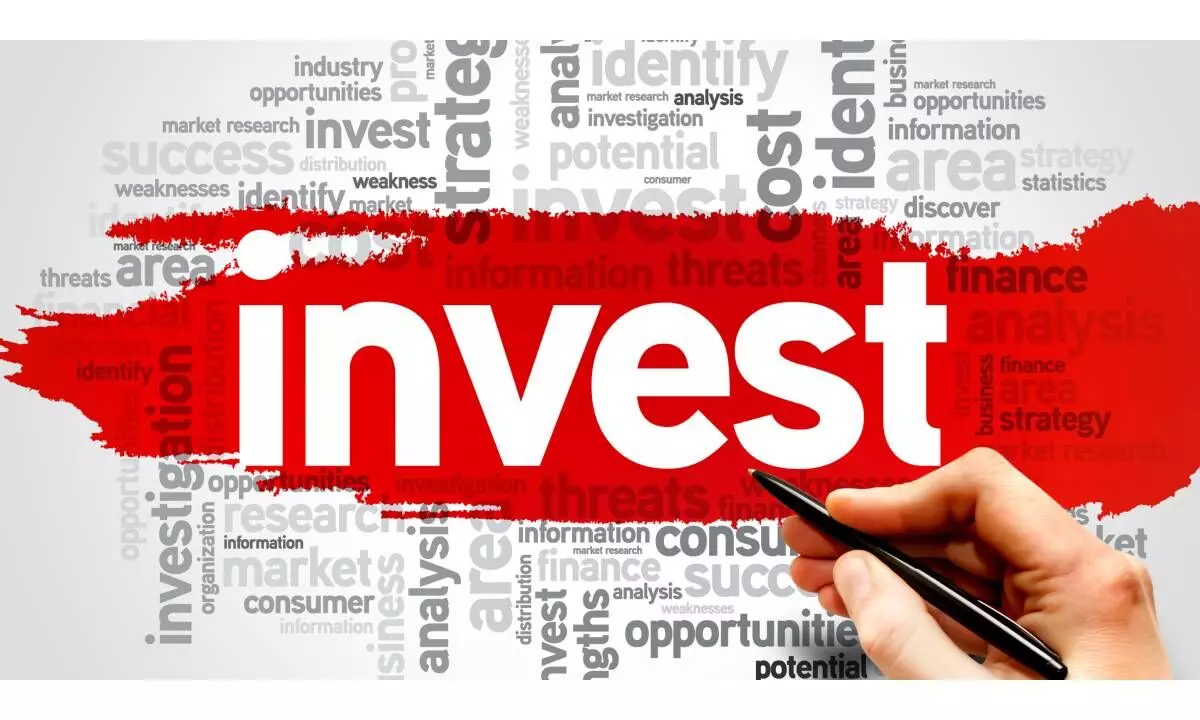Investment blues? Don’t think beyond equity, debt, gold or real estate
The market constantly presents opportunities; there is no real concept of ‘missing out’
image for illustrative purpose

Investment requires both wisdom and knowledge. Investing in an asset without some basic understanding of the products and their normal characteristics can lead to devastating consequences. To prevent negative outcomes, it is essential that investors look before they take the leap or plunge. This implies the need to research on the asset's historical performance, market trends and associated risks.
A critical aspect of making informed investments revolves around keeping one’s ears and eyes open. This involves assessing its past performance, and understanding the factors that could influence its future growth. In this way, one gets a feel of its value, potential returns and spotting warning signs that point towards riskiness.
For retail investors, it is crucial to avoid succumbing to the ‘Fear of missing out’ (FOMO) pitfall. This entails observing others, such as friends, colleagues or close relatives, achieving significant returns and feeling compelled to invest your funds, fearing that you might miss out on a trend. However, it is important to understand that the market constantly presents opportunities, and there is no real concept of "missing out." The market is a pool of resources where one person's gain does not equal another's loss. Opportunities arise regularly, and although market events and various risks affect pricing, with diligent research and technical analysis by oneself, if competent or referring to some experts one can achieve organic returns.
Discipline in investing is a fundamental principle that serves as the foundation for success in financial markets. It essentially refers to the ability of an investor to adhere to well thought-out investment strategies or approaches, without being swayed by emotional reactions or market noise. Discipline plays a pivotal role because it helps investors stay on course, mitigate risks and achieve their financial goals in course of time.
In the context of diverse investment options and disciplined investing, I would like to mention various asset classes that offer attractive opportunities one can opt as per one’s understanding and risk-reward profile.
1. Equity: Equity represents ownership in a company, entailing the acquisition of shares in a firm's ownership structure. While it's the most actively traded asset in the cash market, equity investments are associated with a higher level of risk compared to other asset classes. Stock prices can exhibit significant volatility due to factors like economic conditions, corporate performance and market sentiment. However, it's noteworthy that historically, equities have demonstrated the potential for generating the highest returns among asset classes over the long term. So, it’s important and prudent to give a long-term view on this.
2. Debt: Debt instruments in the stock market encompass bonds and fixed-income securities, where investors extend loans to issuers in exchange for periodic interest payments and the repayment of the principal amount at maturity. Debt investments are generally perceived as less risky compared to equities within the stock market. Nevertheless, there remains the risk of issuer default, particularly when it comes to lower-rated bonds. It also entails interest-rate risk. Debt investments in the stock market typically yield lower returns together with lesser volatilities than equities, making them a preferred choice for income generation and capital preservation for risk-averse investors.
3. Gold: Gold serves as an investment option both within and outside the stock market. Investors can gain exposure to gold through financial instruments such as gold ETFs or by directly investing in companies related to gold. Additionally, they can choose to hold physical gold as part of their investment portfolio. Gold is considered a relatively low-risk investment, whether within or outside the stock market. Although its price may experience fluctuations, it tends to be less volatile compared to equities. It has the potential to deliver returns that are competitive with or slightly lower than those of fixed-income investments. Its primary appeal lies in its role as a hedge against economic uncertainties and inflation.
4. Real estate: Real estate, as an asset class, encompasses investments in physical properties, including residential, commercial, industrial or agricultural properties, as well as real estate-related financial instruments such as Real Estate Investment Trusts (REITs). Investors can opt to acquire properties directly or invest in publicly traded or privately managed real estate assets. Real estate investments are accompanied by certain risks, including market fluctuations, liquidity concerns, location-based variability, and interest rate-related sensitivity. However, they can yield favorable results through rental income (if leased), long-term appreciation, and potential tax savings (based on tax exemption policies).
To put them in their perspective, investment is a bit complex process than plain vanilla products like bank FDs, Small Savings schemes like PPF and Senior Citizen Savings Scheme that requires both wisdom and knowledge.
The four asset classes - equity, debt, gold, and real estate - offer diverse investment opportunities, each with its unique risk and reward characteristics.
To build a well-rounded investment portfolio, investors should carefully assess their risk tolerance, investment objectives, and time horizon while considering a diversified approach that may include a mix of these asset classes.
It is worthy to conclude with one of Warren Buffer’s many pearls of wisdom-Risk comes from not knowing what you’re doing.
(The writer is senior Vice-president, SBI Funds Management Ltd; Translation and text by Sh Sushant Mallik, CFO, DP World Group, Rwanda, East Africa Unit)

